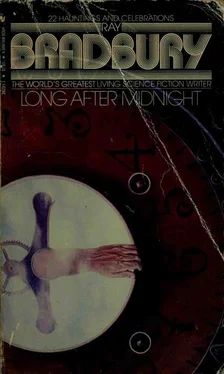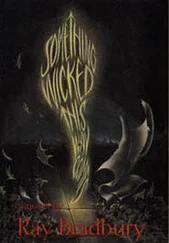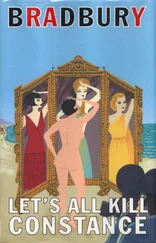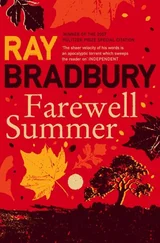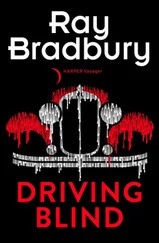Ray Bradbury - Long After Midnight
Здесь есть возможность читать онлайн «Ray Bradbury - Long After Midnight» — ознакомительный отрывок электронной книги совершенно бесплатно, а после прочтения отрывка купить полную версию. В некоторых случаях можно слушать аудио, скачать через торрент в формате fb2 и присутствует краткое содержание. Год выпуска: 1982, ISBN: 1982, Жанр: Классическая проза, на английском языке. Описание произведения, (предисловие) а так же отзывы посетителей доступны на портале библиотеки ЛибКат.
- Название:Long After Midnight
- Автор:
- Жанр:
- Год:1982
- ISBN:978-0-553-22867-0
- Рейтинг книги:5 / 5. Голосов: 1
-
Избранное:Добавить в избранное
- Отзывы:
-
Ваша оценка:
- 100
- 1
- 2
- 3
- 4
- 5
Long After Midnight: краткое содержание, описание и аннотация
Предлагаем к чтению аннотацию, описание, краткое содержание или предисловие (зависит от того, что написал сам автор книги «Long After Midnight»). Если вы не нашли необходимую информацию о книге — напишите в комментариях, мы постараемся отыскать её.
Long After Midnight — читать онлайн ознакомительный отрывок
Ниже представлен текст книги, разбитый по страницам. Система сохранения места последней прочитанной страницы, позволяет с удобством читать онлайн бесплатно книгу «Long After Midnight», без необходимости каждый раз заново искать на чём Вы остановились. Поставьте закладку, и сможете в любой момент перейти на страницу, на которой закончили чтение.
Интервал:
Закладка:
He stopped shaking after a minute and stood up to take off the soggy coat. She handed him a leather jacket. "Come on, he's waiting for us."
He began to shiver again. "I'm not going anywhere, to hell with you," he said, sitting down. "You owe me fifty dollars now."
"What for?"
"You remember, you promised."
And she remembered. They had had a fight about some silly thing, in California, the first day of the trip, yes, by God, the very first day out. And she for the first time in her life had lifted her hand to slap him. Then, appalled, she had dropped her hand, staring at her traitorous fingers. "You were going to slap me!" he had cried. "Yes," she replied. "Well," he said quietly, "the next time you do a thing like that, you'll hand over fifty dollars of your money." That's how life was, full of little tributes and ransoms and blackmails. She paid for all her errors, unmotivated or not. A dollar here, a dollar there. If she spoiled an evening, she paid the dinner bill from her clothing money. If she criticized a play they had just seen and he had liked it, he flew into a rage, and, to quiet him, she paid for the theater tickets. On and on it had gone, swifter and swifter over the years. If they bought a book together and she didn't like it but he did and she dared speak out, there was a fight, sometimes a small thing which grew for days, and ended with her buying the book plus another and perhaps a set of cufflinks or some other silly thing to calm the storm. Jesus!
"Fifty dollars. You promised if you acted up again with these tantrums and slappings."
"It was only water. I didn't hit you. All right, shut up, I'll pay the money, I'll pay anything just to be let alone; it's worth it, and five hundred dollars more, more than worth it. I'll pay."
She turned away. When you're sick for a number of years, when you're an only child, the only boy, all of your life, you get the way he is, she thought. Then you find yourself thirty-five years old and still undecided as to what you're to be—a ceramist, a social worker, a businessman. And your wife has always known what she would be—a writer. And it must be maddening to live with a woman with a single knowledge of herself, so sure of what she would do with her writing. And selling stories, at last, not many, no, but just enough to cause the seams of the marriage to rip. And so how natural that he must convince her that she was wrong and he was right, that she was an uncontrollable child and must forfeit money. Money was to be the weapon he held over her. When she had been a fool she would give up some of the precious gain—the product of her writing.
"Do you know," she said, suddenly, aloud, "since I made that big sale to the magazine, you seem to pick more fights and I seem to pay more money?"
"What do you mean by that?" he said.
It seemed to her to be true. Since the big sale he had put his special logic to work on situations, a logic of such a sort that she had no way to combat it. Reasoning with him was impossible. You were finally cornered, your explanations exhausted, your alibis depleted, your pride in tatters. So you struck out. You slapped at him or broke something, and then, there you were again, paying off, and he had won. And he was taking your success away from you, your single purpose, or he thought he was, anyway. But strangely enough, though she had never told him, she didn't care about forfeiting the money. If it made peace, if it made him happy, if it made him think he was causing her to suffer, that was all right. He had exaggerated ideas as to the value of money; it hurt him to lose it or spend it, therefore he thought it would hurt her as much. But I'm feeling no pain, she thought, I'd like to give him all of the money, for that's not why I write at all, I write to say what I have to say, and he doesn't understand that.
He was quieted now. "You'll pay?"
"Yes." She was dressing quickly now, in slacks and jacket. "In fact, I've been meaning to bring this up for some time. I'm giving all the money to you from now on. There's no need of my keeping my profits separate from yours, as it has been. I'll turn it over to you tomorrow."
"I don't ask that," he said, quickly.
"I insist. It all goes to you."
What I'm doing, of course, is unloading your gun, she thought. Taking your weapon away from you. Now you won't be able to extract the money from me, piece by piece, bit by painful bit. You'll have to find another way to bother me.
"I-" he said.
"No, let's not talk about it. It's yours."
"It's only to teach you a lesson. You've a bad temper," he said. "I thought you'd control it if you had to forfeit something."
"Oh, I just live for money," she said.
"I don't want all of it."
"Come on now." She was weary. She opened the door and listened. The neighbors hadn't heard, or if they had, they paid no attention. The lights of the waiting taxi illuminated the front patio.
They walked out through the cool moonlit night. She walked ahead of him for the first time in years.
Paricutin was a river of gold that night. A distant murmuring river of molten ore going down to some dead lava sea, to some volcanic black shore. Time and again if you held your breath, stilled your heart within you, you could hear the lava pushing rocks down the mountain in tumblings and roarings, faintly, faintly. Above the crater were red vapors and red light. Gentle brown and gray clouds arose suddenly as coronets or halos or puffs from the interior, their undersides washed in pink, their tops dark and ominous, without a sound.
The husband and the wife stood on the opposite mountain, in the sharp cold, the horses behind them. In a wooden hut nearby, the scientific observers were lighting oil lamps, cooking their evening meal, boiling rich coffee, talking in whispers because of the clear, night-explosive air. It was very far away from everything else in the world.
On the way up the mountain, after the long taxi drive from Uruapan, over moon-dreaming hills of ashen snow, through dry stick villages, under the cold clear stars, jounced in the taxi like dice in a gambling-tumbler, both of them had tried to make a better thing of it. They had arrived at a campfire on a sort of sea bottom. About the campfire were solemn men and small dark boys, and a company of seven other Americans, all men, in riding breeches, talking in loud voices under the soundless sky. The horses were brought forth and mounted. They proceeded across the lava river. She talked to the other Yankees and they responded. They joked together. After a while of this, the husband rode on ahead.
Now, they stood together, watching the lava wash down the dark cone summit.
He wouldn't speak.
"What's wrong now?" she asked.
He looked straight ahead, the lava glow reflected in his eyes. "You could have ridden with me. I thought we came to Mexico to see things together. And now you talk to those damned Texans."
"I felt lonely. We haven't seen any people from the States for eight weeks. I like the days in Mexico, but I don't like the nights. I just wanted someone to talk to."
"You wanted to tell them you're a writer."
"Thaf s unfair."
"You're always telling people you're a writer, and how good you are, and you've just sold a story to a large-circulation magazine and that's how you got the money to come here to Mexico.
"One of them asked me what I did, and I told him. Damn right I'm proud of my work. I've waited ten years to sell some damn thing."
He studied her in the light from the fire mountain and at last he said, "You know, before coming up here tonight, I thought about that damned typewriter of yours and almost tossed it into the river."
"You didn't!"
"No, but I locked it in the car. I'm tired of it and the way you've ruined the whole trip. You're not with me, you're with yourself, you're the one who counts, you and that damned machine, you and Mexico, you and your reactions, you and your inspiration, you and your nervous sensitivity, and you and your aloneness. I knew you'd act this way tonight, just as sure as there was a First Coming! I'm tired of your running back from every excursion we make to sit at that machine and bang away at all hours. This is a vacation."
Читать дальшеИнтервал:
Закладка:
Похожие книги на «Long After Midnight»
Представляем Вашему вниманию похожие книги на «Long After Midnight» списком для выбора. Мы отобрали схожую по названию и смыслу литературу в надежде предоставить читателям больше вариантов отыскать новые, интересные, ещё непрочитанные произведения.
Обсуждение, отзывы о книге «Long After Midnight» и просто собственные мнения читателей. Оставьте ваши комментарии, напишите, что Вы думаете о произведении, его смысле или главных героях. Укажите что конкретно понравилось, а что нет, и почему Вы так считаете.
